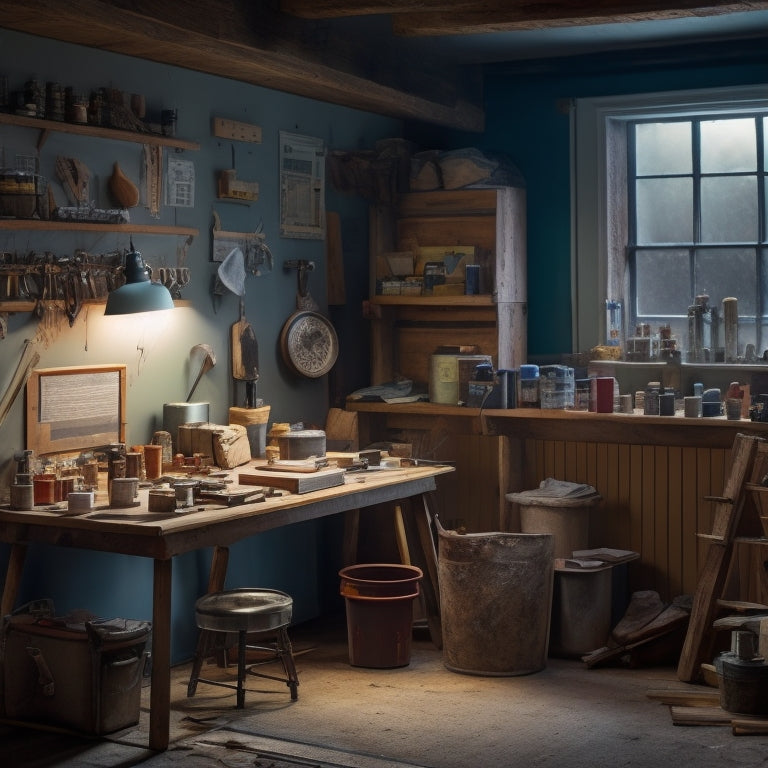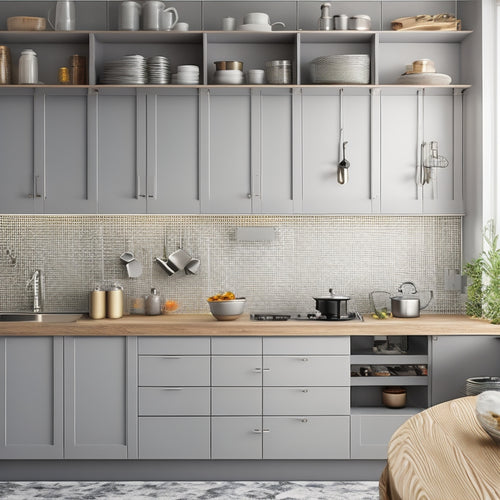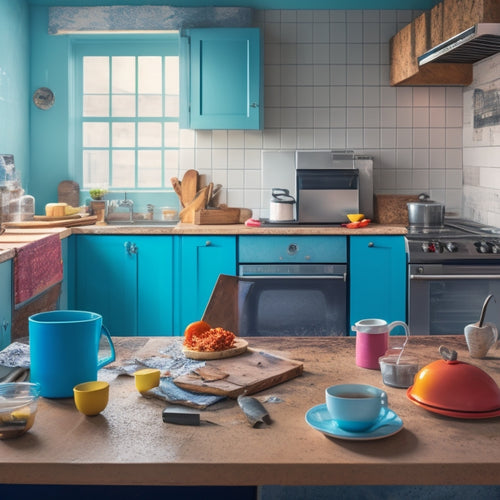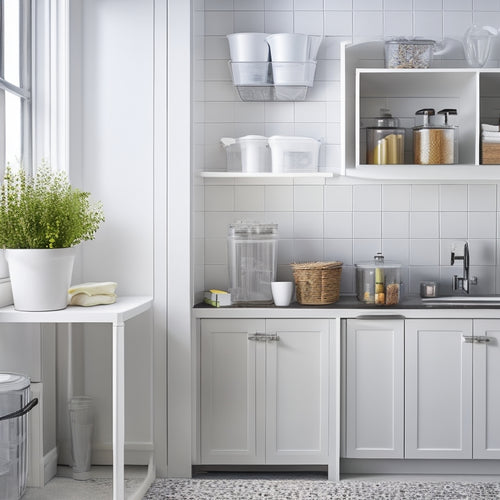
3 Beginner-Friendly DIY Home Renovation Tips
Share
To guarantee a successful DIY home renovation, you'll want to start with a solid plan, outlining your project vision, timeline, and budget. Next, investigate budget-friendly material hacks, like upcycling old furniture, using paint alternatives, and repurposing building materials. Finally, measure twice, hammer once, by investing in reliable tools and developing a systematic approach to ascertain precise measurements. By following these three beginner-friendly tips, you'll be well on your way to turning your vision into a stunning reality, and with a few more expert perspectives, your dream home will start taking shape.
Key Takeaways
- Start with a clear project vision and gather design inspiration from online platforms and magazines to avoid costly mistakes and ensure a successful outcome.
- Create a project timeline with detailed tasks, deadlines, and dependencies to enhance project management and stay on track.
- Invest in reliable measurement tools, such as tape measures and laser levels, and develop a systematic approach to ensure accurate readings and avoid mistakes.
- Consider budget-friendly material hacks, like upcycling old furniture and using paint alternatives, to maintain style while minimizing expenses.
- Double-check measurements and record findings to ensure precision and avoid costly mistakes that can derail your DIY renovation project.
Start With a Solid Plan
Typically, DIY home renovation projects that end in disaster often lack one essential element: a solid plan. You can't just jump into a project without a clear understanding of what you want to achieve and how you'll get there.
Start by gathering design inspiration from online resources, magazines, or showrooms to define your style and vision. To maximize your workspace efficiency and reduce clutter, consider implementing digital sign-in processes and DIY storage solutions.
Next, create a project timeline that outlines each task, including deadlines and dependencies. This will help you stay on track, allocate resources effectively, and make adjustments as needed.
With a solid plan in place, you'll be better equipped to manage your project and guarantee a successful outcome.
Budget-Friendly Material Hacks
With your plan in place, it's time to think about the materials you'll need to bring your vision to life. One of the biggest expenses in any DIY renovation is the cost of materials.
However, with a little creativity, you can save big without sacrificing style.
Consider these budget-friendly material hacks:
-
Upcycled furniture: Give old pieces a new life by refinishing or repurposing them. You'll reduce waste and add unique character to your space.
-
Paint alternatives: Instead of buying expensive paint, try using stain, varnish, or even wallpaper to add color and texture to your walls.
-
Repurposed building materials: Think beyond traditional lumber and investigate options like reclaimed wood, pallets, or even old pallet crates to create one-of-a-kind features.
Measure Twice, Hammer Once
Around every corner of your DIY renovation lies a potential measurement mistake waiting to happen. You can't afford to wing it when it comes to taking precise measurements.
To avoid costly errors, invest in a reliable tape measure and a laser level to guarantee accuracy. Develop a systematic approach to measurement techniques, such as measuring twice and recording your findings to double-check your work.
When selecting tools, choose high-quality options that will provide precise readings. A digital angle finder, for instance, can help you achieve accurate miter cuts.
Frequently Asked Questions
Can I Do DIY Renovations if I'm Not Handy?
You stand in your outdated space, envisioning a fresh oasis. Don't let lack of handiness hold you back! With basic tools and access to renovation resources, you can tackle DIY projects, unfastening your home's potential and your own confidence.
How Do I Handle Unexpected Renovation Expenses?
You'll inevitably face unexpected expenses; that's why you're wise to pad your renovation budget by 10-20%. Create an emergency fund to absorb shocks, and prioritize budgeting strategies like cost categorization and contingency planning to stay in control.
Do I Need a Permit for Small Renovation Projects?
Like a skilled builder, you construct your renovation plan, but don't overlook the essential foundation: permit requirements. You'll need to maneuver local renovation regulations, ensuring you obtain necessary permits to avoid costly repercussions and potential legal battles.
Can I Reuse Old Materials in My Renovation?
You can greatly reduce waste and costs by reusing old materials in your renovation, embracing recycling materials that are still in good condition, which ultimately leads to notable cost savings and a more sustainable project.
Should I DIY or Hire a Professional for Electrical Work?
When tackling electrical work, you should prioritize your safety above all; unless you're experienced, it's best to hire a pro who's well-versed in local electrical codes and can take necessary safety precautions to avoid risking your life and property.
Related Posts
-

What Makes Ideal Kitchen Storage Solutions
In your ideal kitchen, you'll find a harmonious balance of style and functionality, where every item has a designated...
-

Kitchen Renovation Cost Estimates Made Easy
You're about to commence a kitchen renovation expedition, and getting a handle on the costs is essential to avoiding ...
-

Corner Solutions for Kitchen Cleaning Supplies
You can investigate corner solutions that improve access to cleaning supplies. This can be practiced by maximizing hi...


